Wasps rugby club buzzing a year after stadium move
- Published
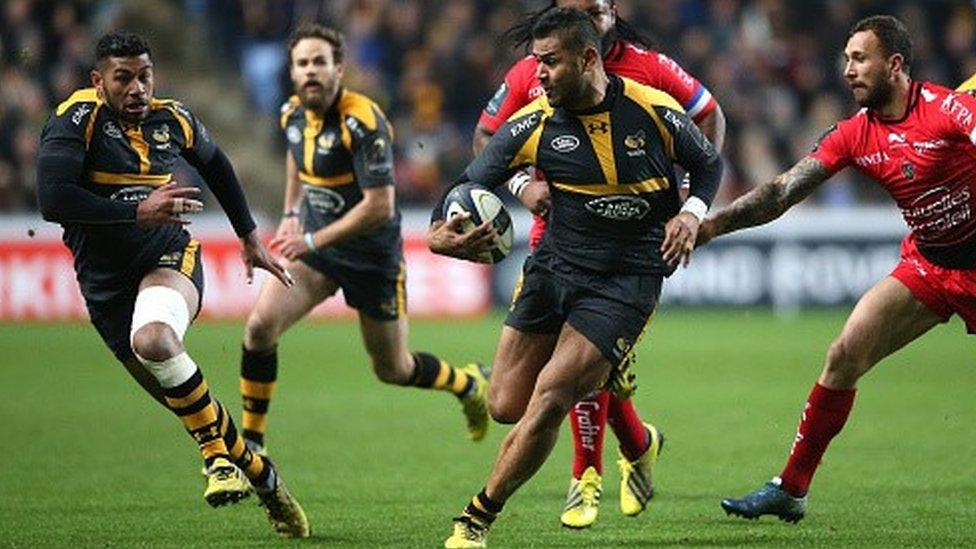
Wasps says the money it makes is ploughed back into the playing side of operations
When pop superstar Rihanna last week unveiled her 2016 UK concert tour dates, her choice of opening venue was seen as a vindication for an English rugby union club that has financially come back from the brink.
This time last year rugby club Wasps was putting the final touches to its move from High Wycombe to Coventry, a 75 mile journey it hoped would transform it from a club losing more than £3m a year into a thriving leisure business.
As part of its relocation Wasps did not just move into, but acquired, the Ricoh Arena stadium complex in the West Midlands city for £20m.
'Huge endorsement'
The fact that the Barbadian artist - famous for hit singles like Umbrella, We Found Love, and Diamonds - is kicking off her high-profile tour in their stadium is a source of pride to club executives, and an indication of how far financially as well as geographically they have come.
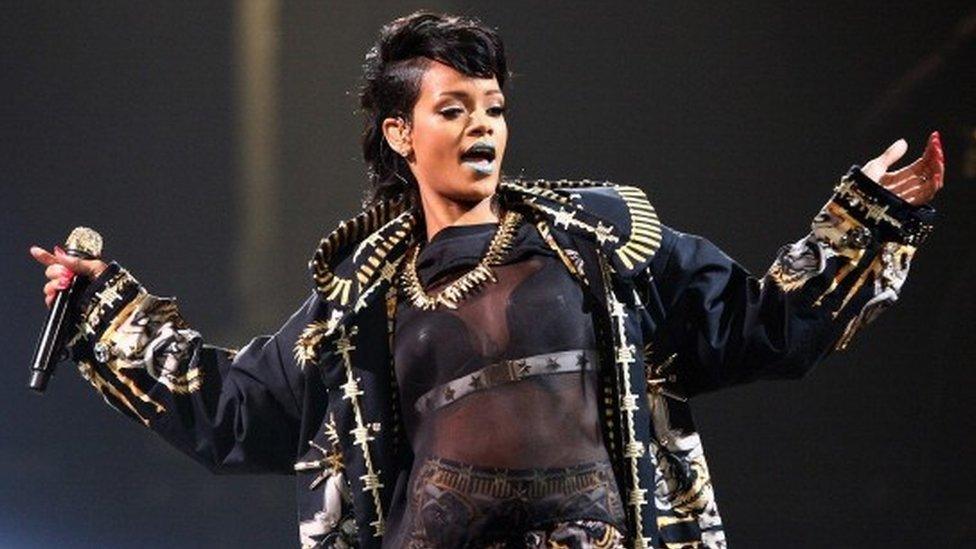
Rihanna kicks of her six date UK tour at the Ricoh Arena in Coventry next June
It also illustrates how the Premiership club sees its new commercial model as being as much about leisure as it is about sport.
"The entertainment side is where we see the biggest commercial growth," Wasps Group chief executive David Armstrong tells me.
'Commercial move'
It was 13 months ago that Wasps, then based in Buckinghamshire, announced they would play their home games at the Ricoh Arena, completing the stadium purchase a month later. Their first game as owners of their new home was a win against London Irish in December 2014.
A year on, the club is no longer the tenant of Wycombe Wanderers football club, but a multi-venue, multi-use business.
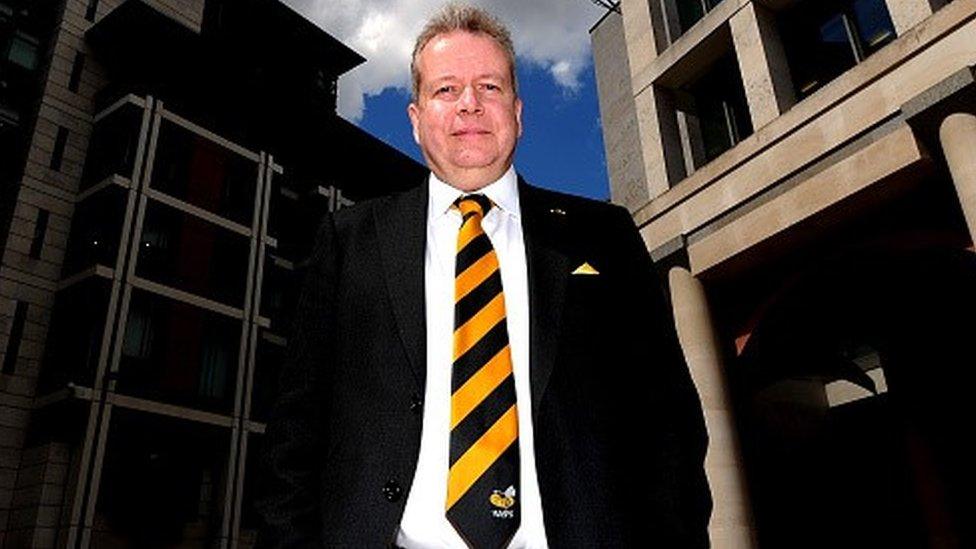
Mr Armstrong says the move was made to create a stable long-term business model
Moving a major sporting "franchise" lock, stock and barrel from one city to another is not uncommon in the United States, but in the more conservative UK, such uprooting is greeted with suspicion.
"The primary reason for moving was commercial," Mr Armstrong said, speaking to the BBC at the annual Rugby Expo conference at Twickenham.
"We were looking to create a stable long-term business model that would take us forward over the next 250 years," he adds, referring to the length of their Ricoh lease.
"With our previous business model, we were losing in the region of £3m to £4m a year. Our only revenue then was ticket sales. Food and beverage sales went to the football club, while other revenue went to our sponsors.
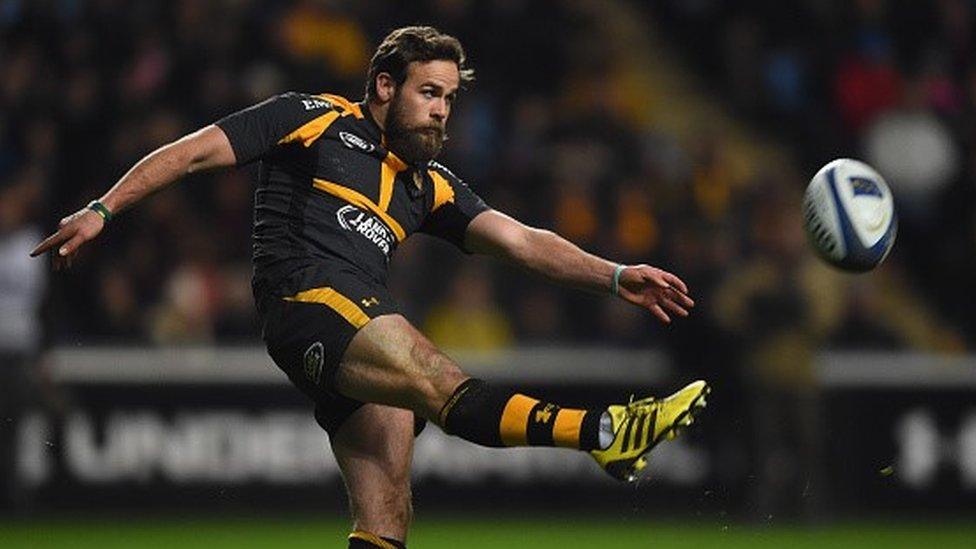
The club raised millions through a bond issue earlier in 2015
"We were a shell of a club, and couldn't be competitive and make money."
As well as its new income strands, earlier this year, the club raised £35m with the issue of a seven-year bond, paying a fixed gross rate of interest of 6.50% a year until 2022 . Funds raised were used to restructure the club balance sheet and pay down existing debt, including loans acquired with the Ricoh Arena.
According to Mr Armstrong the banks backed the bond issue because of the strength of the club's various income strands.
'Leisure brand'
Ownership of the Ricoh Stadium complex gives Wasps control over other income streams, not just from rugby matches.
As well as the main sports stadium bowl, the purchase also saw the club acquire the indoor 12,000-standing-capacity Jaguar Exhibition Hall, which hosts smaller music concerts, and can also be hired for trade shows, company presentations and other business use.
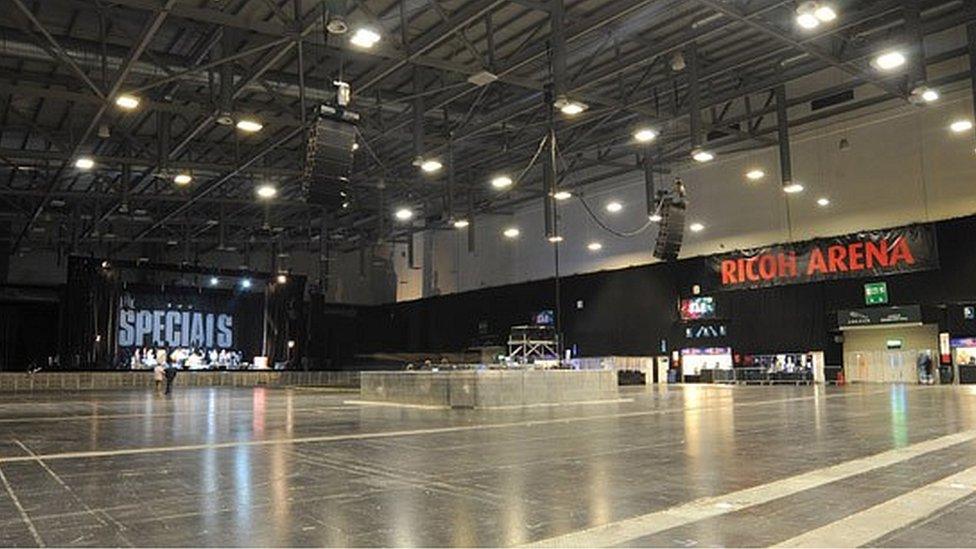
The indoor Jaguar Exhibition Hall at the Ricoh complex being prepared for a gig
And the Ricoh also contains three restaurants, five bars, 20 retail units, one of the biggest casinos in England, and a 121 bed hotel. Meanwhile, football club Coventry City football club, currently top of League One, are paying tenants.
"We are now a full end-to-end leisure brand, hosting conferences, banqueting, concerts, but headed by the rugby club," says Mr Armstrong.
"The important thing is that the other income strands give financial stability to the rugby team, they wrap around it."
'Perfect rugby stadium'
He said that before the club moved it carried out thorough research, which showed an appetite within the West Midlands region, home to about five million people, for top-flight rugby .
"So we knew there was a potential fan base before we arrived in the area," Mr Armstrong says. "The West Midlands, although it has a strong rugby union heritage, has never had a Premiership club."
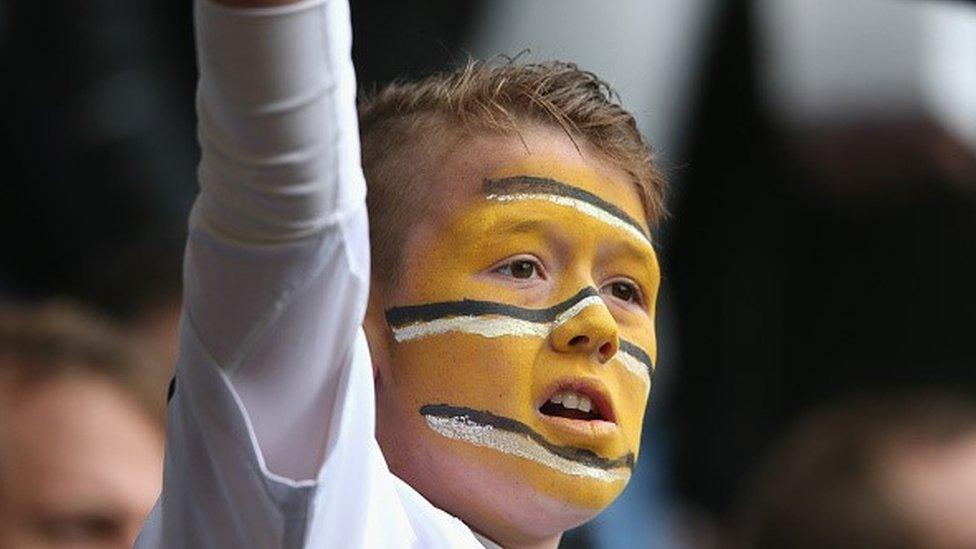
Wasps believes it can tap into a fertile potential fan base in the West Midlands
He adds: "In addition, we were looking at what we thought was the ultimate stadium for rugby union.
"It is not too big, not Manchester United-sized. It is a 32,000 capacity, where crowds of 19,000 and 20,000 look comfortable. And it is also the right size for us to grow into as we extend our fan base."
Expansion plans
And the club, which currently sits eighth in the Premiership table after four games, has further expansion plans.
Schemes in the pipeline include building a new training centre in the next year or two in the Coventry area, a second or even third hotel at the Ricoh complex, and a new 150,000 sq ft "multi-use leisure facility with retail, and food and beverage".
There are also plans for an expanded Wasps rugby retail business in the West Midlands.
Meanwhile, the club says it also wants to provide a "compelling digital offer" not only for its rugby fans at the stadium (such as ordering food and drinks from your seat), but also for its other business customers who use the Ricoh facilities.
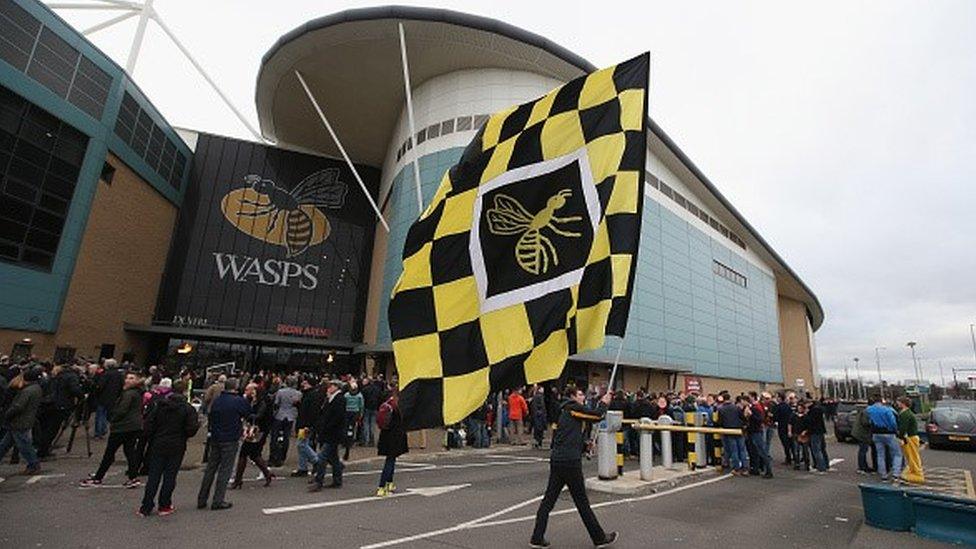
More hotels might be built at the Ricoh Arena complex
"But we never lose sight of what we are," he adds. "We are a leading Premiership rugby club, and that will always be the heart of what do.
"The revenue we make means we can invest in training centres, coaches, physios, players and salaries, to give ourselves the best possible chance on the pitch."
Dominic Hayes, commercial director of Premiership Rugby observes: "I think the work that Wasps have done to up sticks and move city is a testament to the strength of the Wasps brand. We have got to acknowledge there is some real strength there.
"Similarly with the Wasps bond, that was on the strength of the Wasps brand, not the Ricoh."
And, while other famous music acts have played in the main Ricoh Arena bowl in the past before Wasps took over, Mr Armstrong is particularly pleased at the Rihanna news.
"For us it is important to get these big names... and it's nice to give a poke in the eye to Birmingham," he laughs.